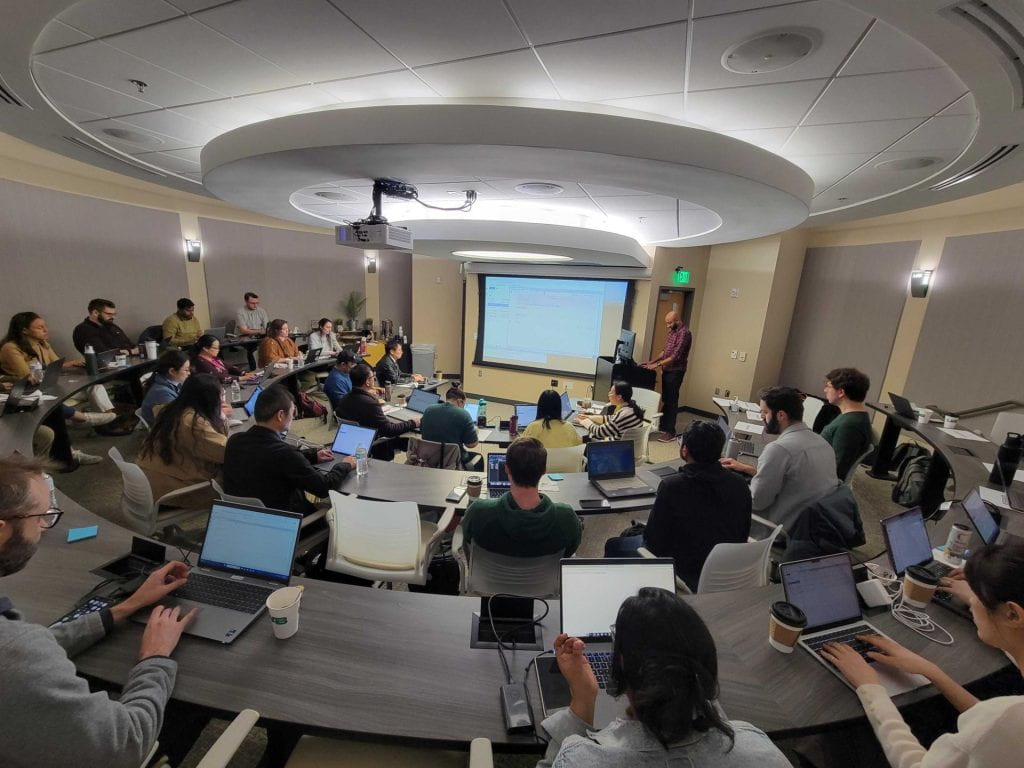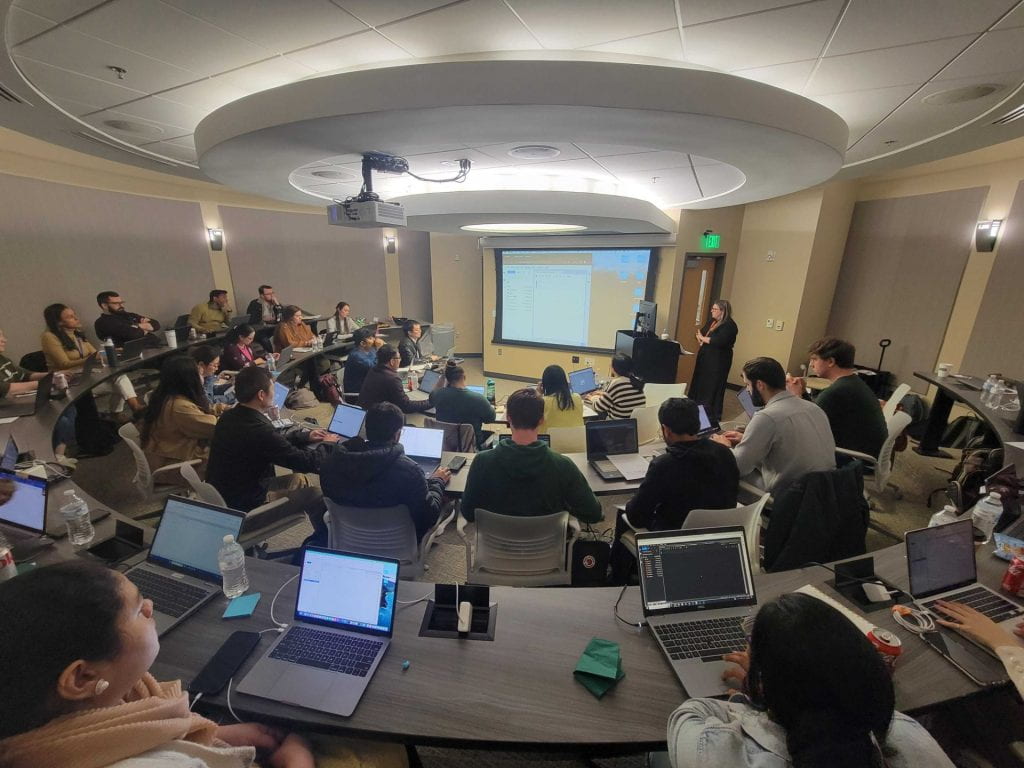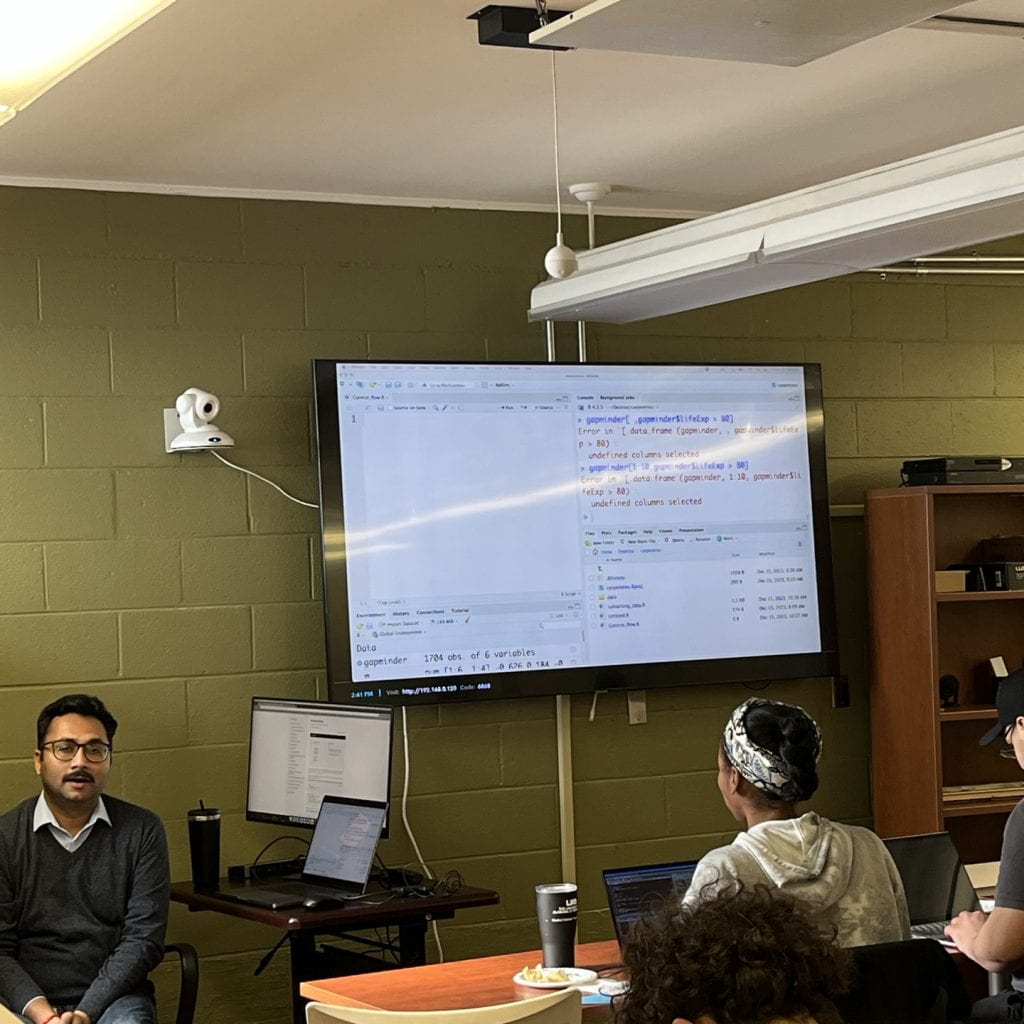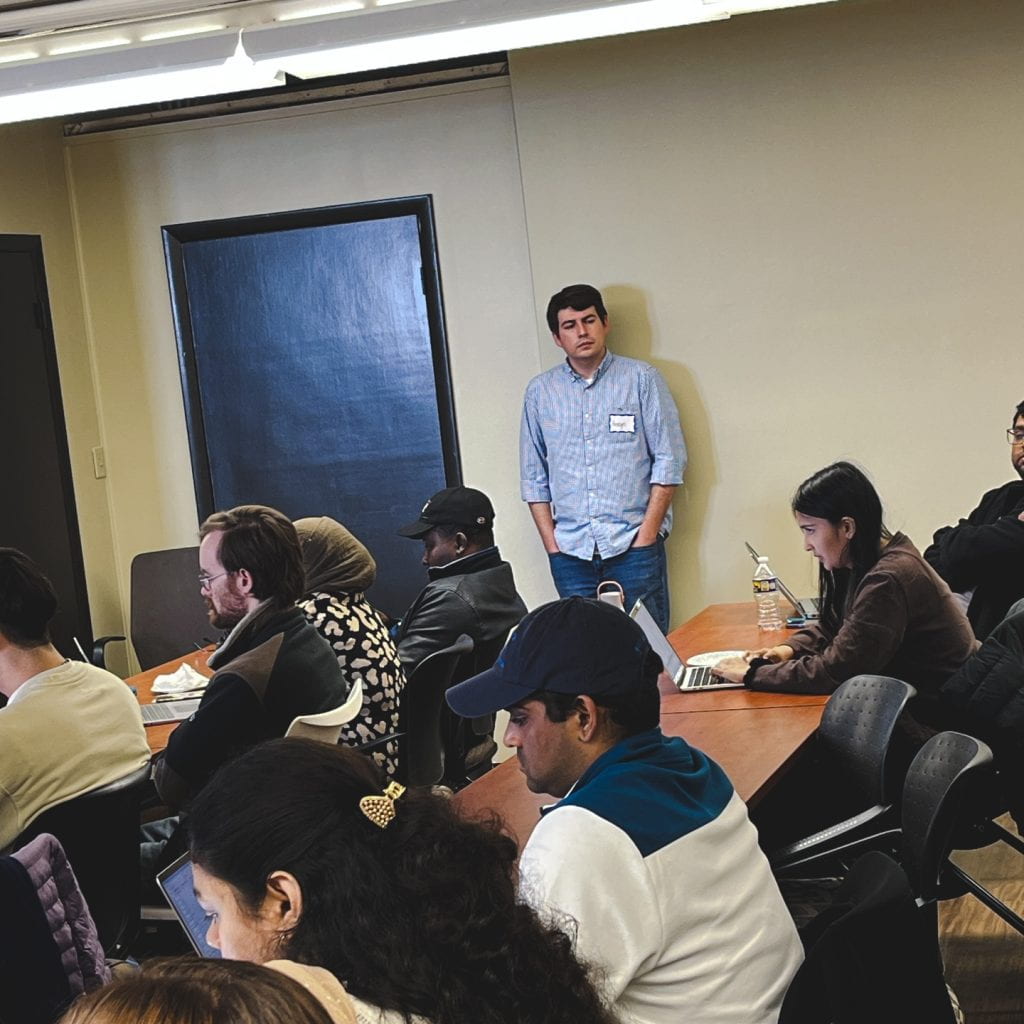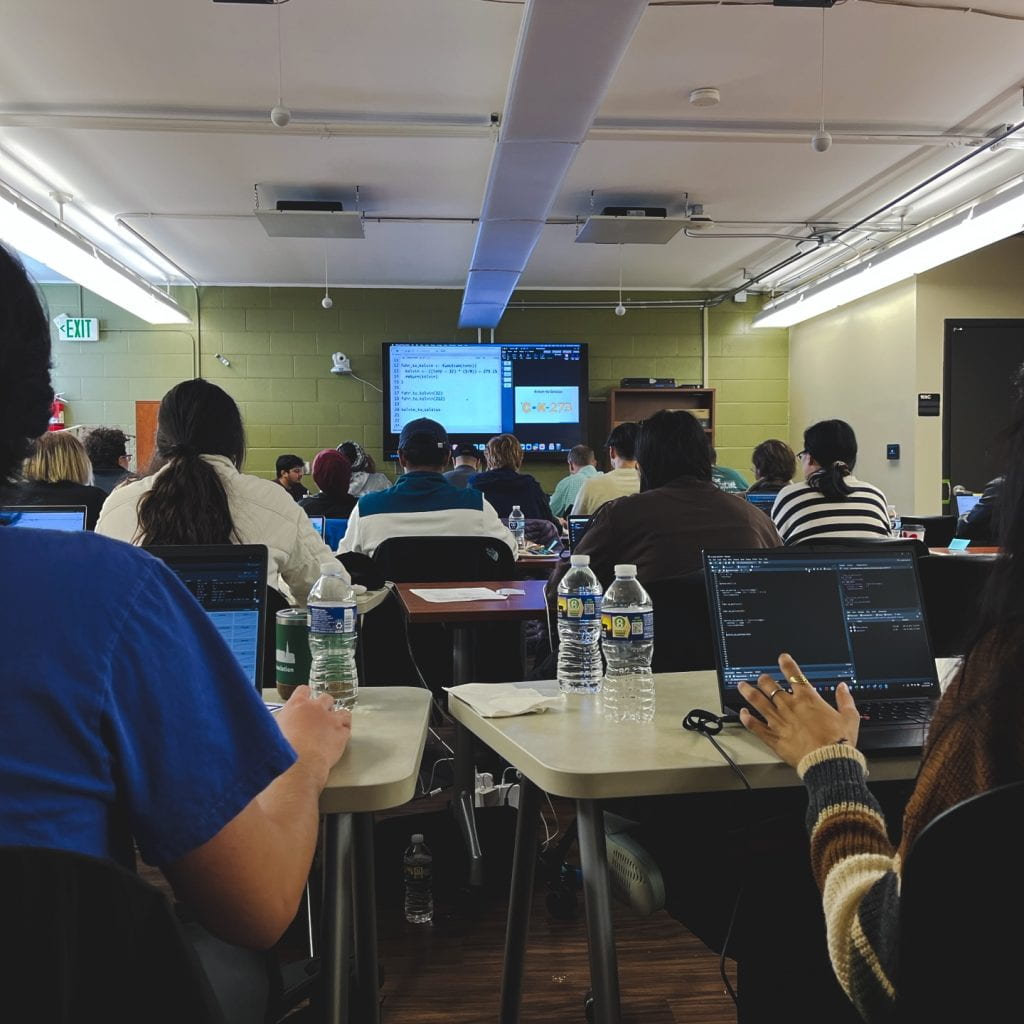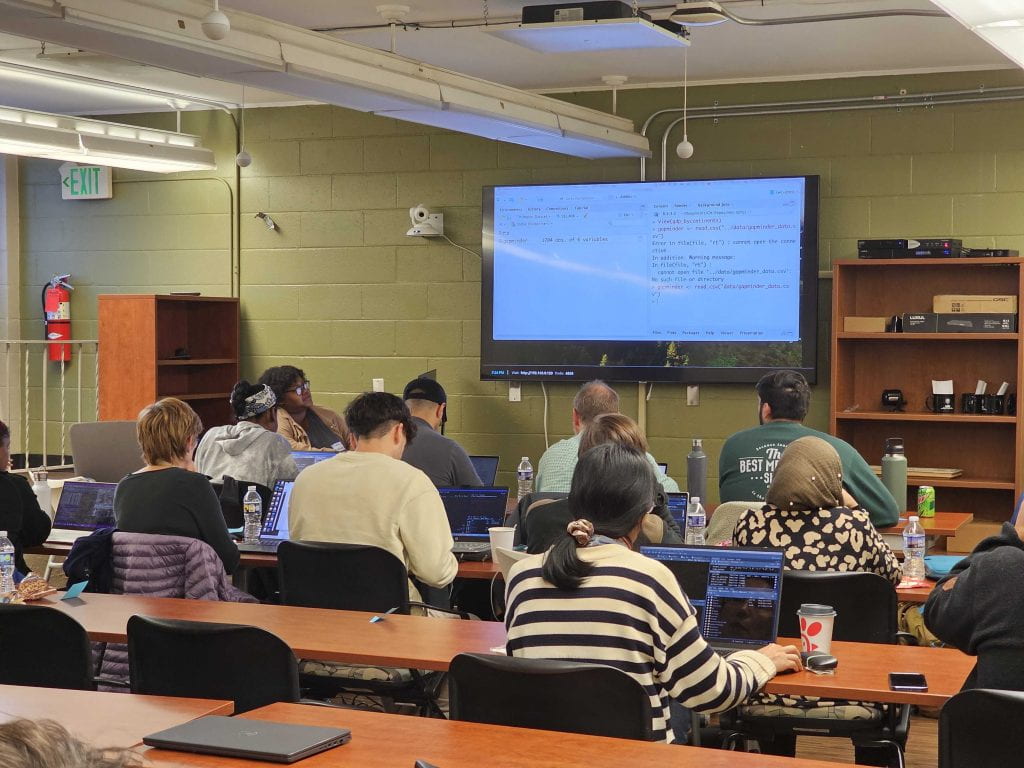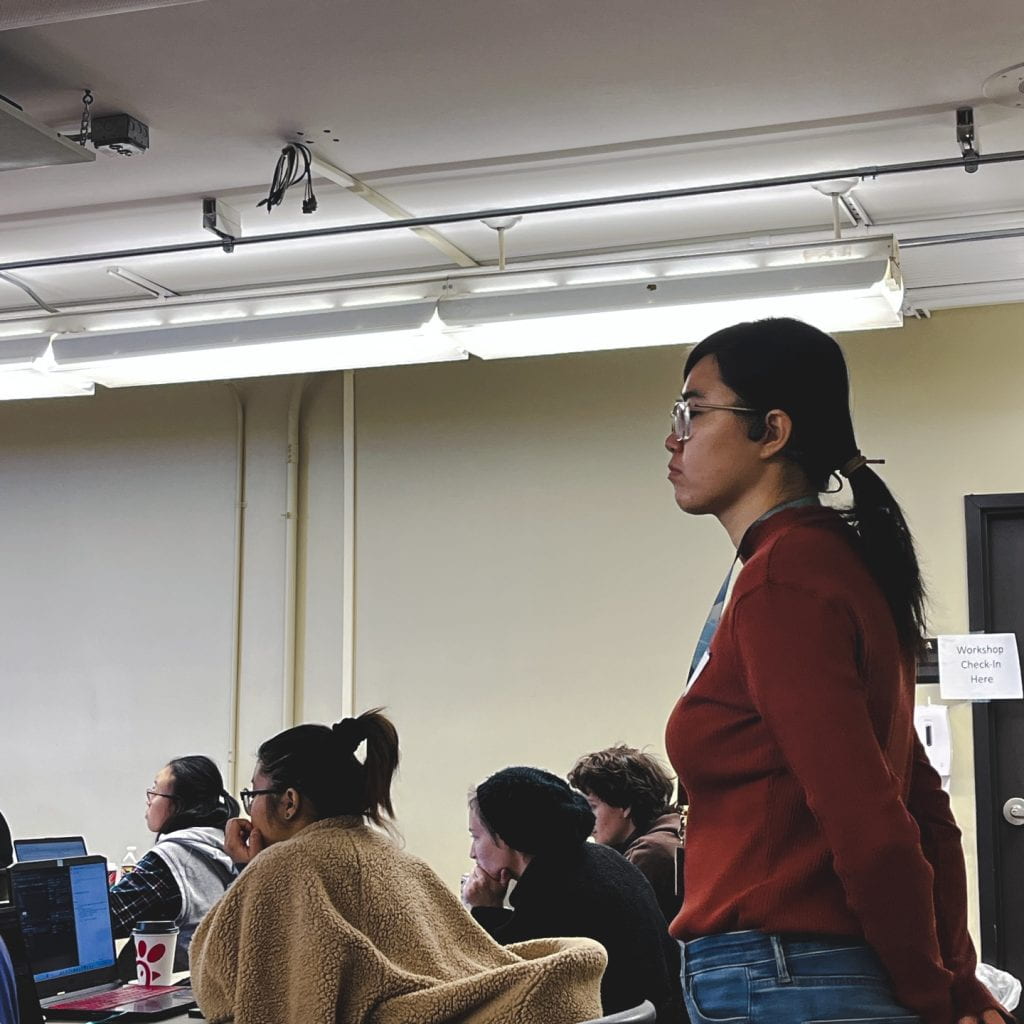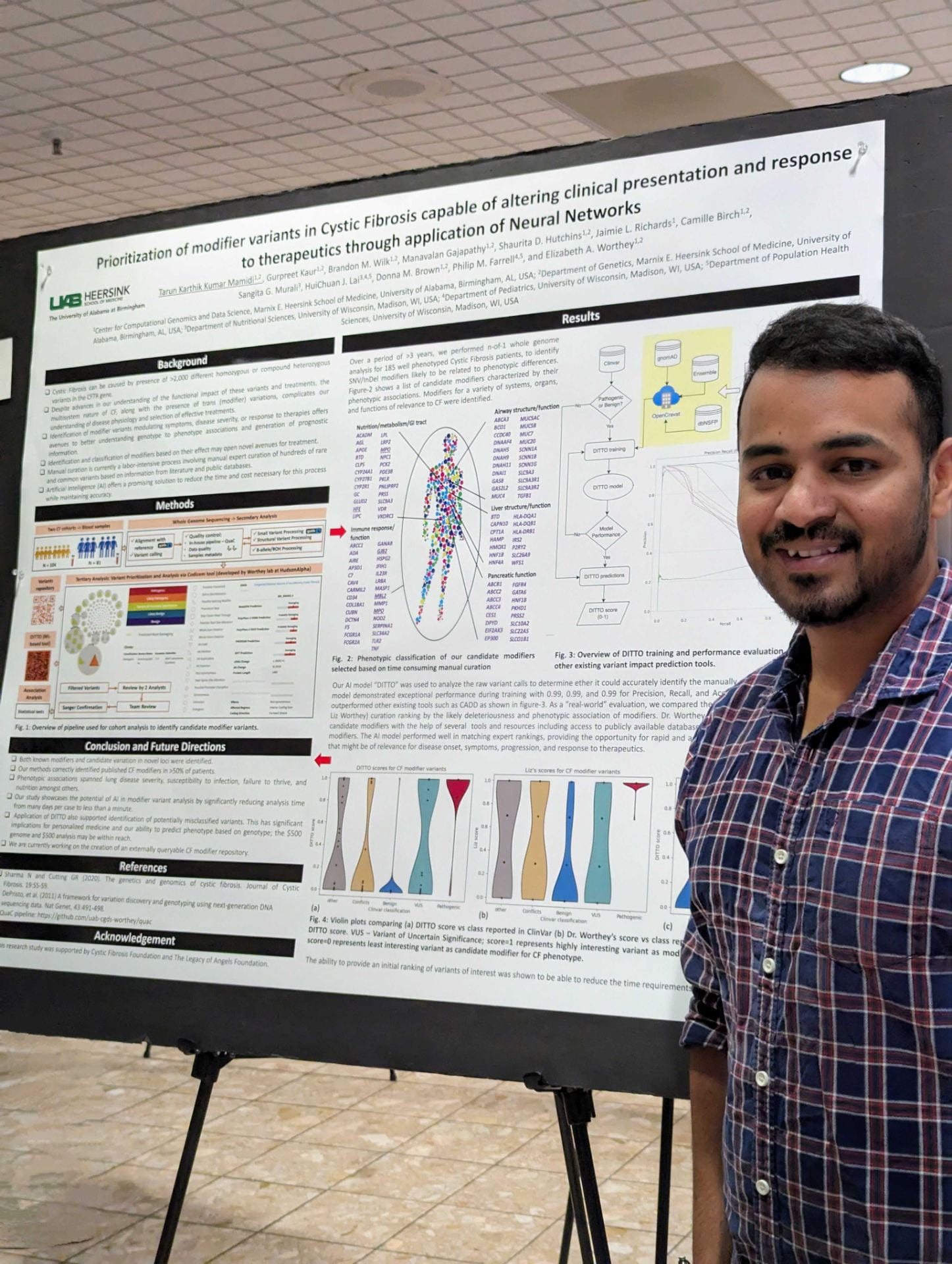Brandon Wilk, a doctoral trainee in Genetics, Genomics, and Bioinformatics, gave an oral presentation at the 2024 Prader-Willi Syndrome (PWS) Research Symposium. His talk, “A Patient-Centered WGS-Driven Pilot Study: What Clinically Useful Knowledge Can We Gain from WGS?”, focused on the potential of whole-genome sequencing to provide meaningful insights for improving care in PWS. This work emphasizes the value of leveraging genomics to address patient-specific challenges.
Congratulations to Brandon for representing our lab and contributing to advancing PWS research!
